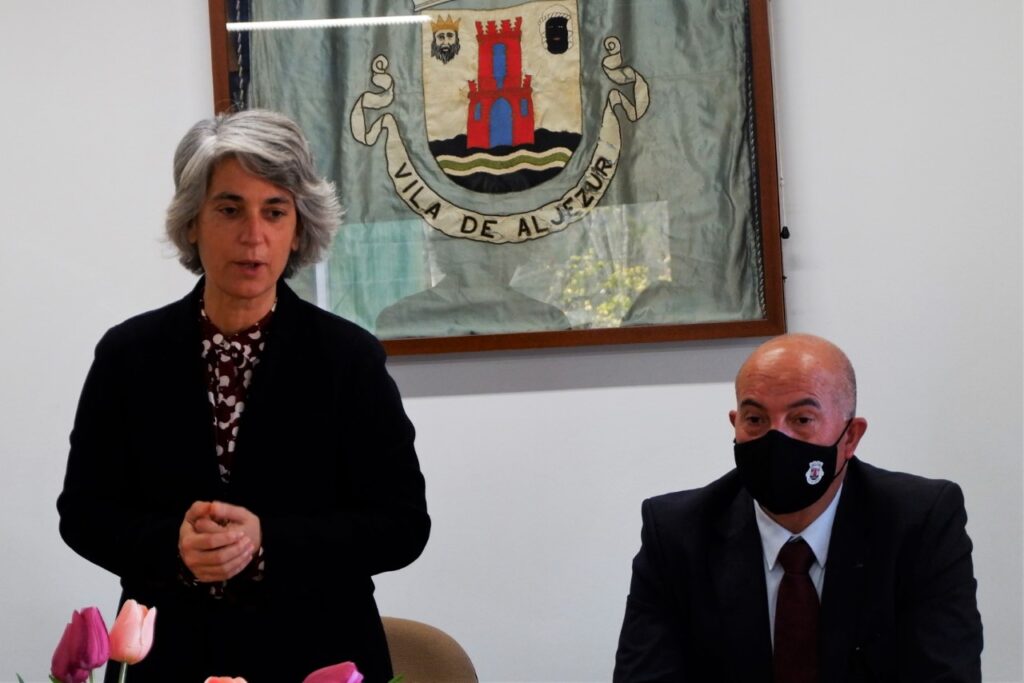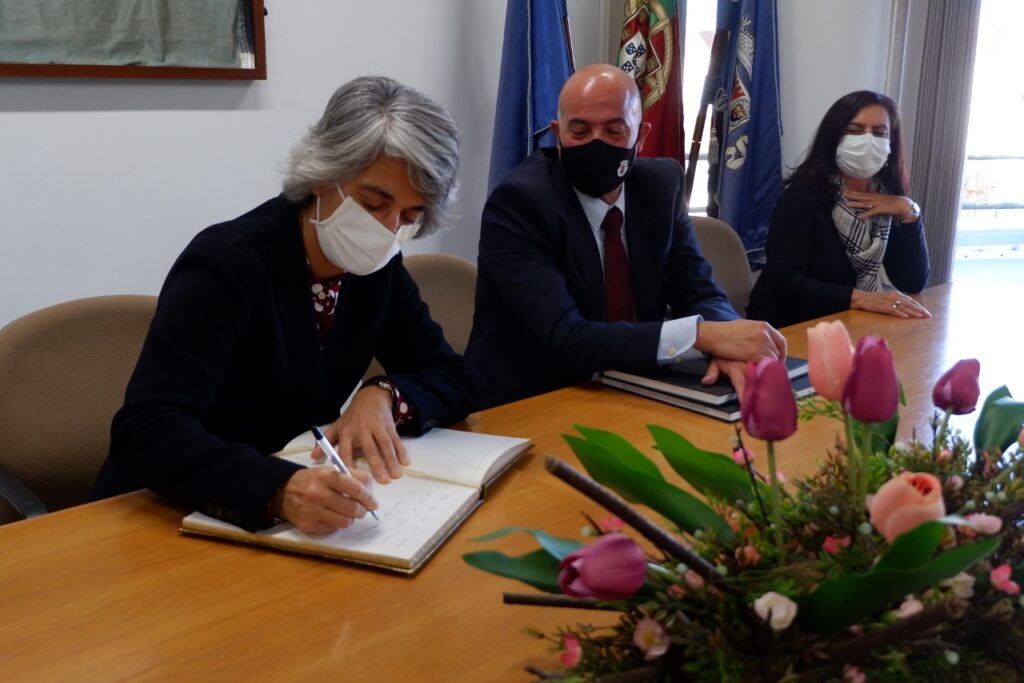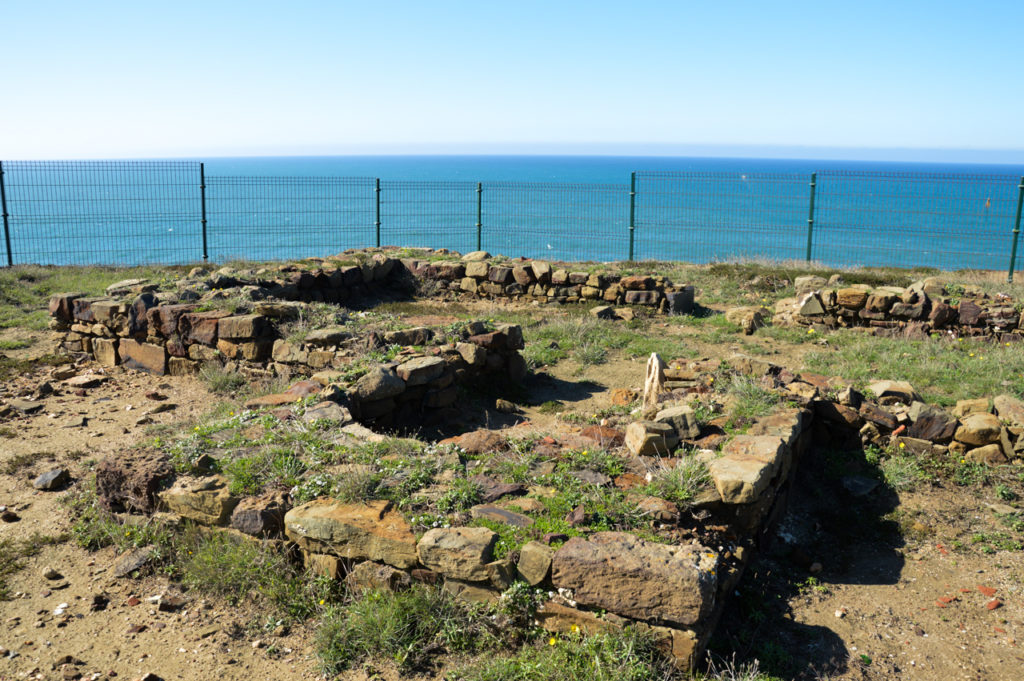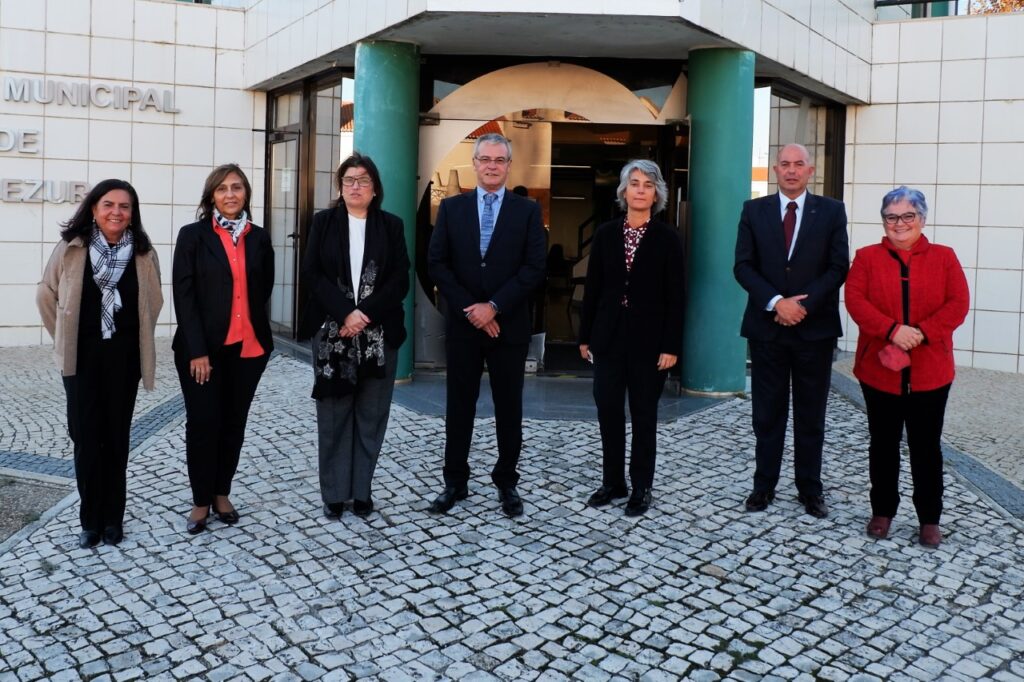«This is a great moment for Aljezur, for the region and for the country, because this heritage is national, it is part of our history», says José Gonçalves, mayor of Aljezur, moments after the signing of the protocol that will allow the creation of the Rîbat da Arrifana Interpretation Center, an archaeological site of great importance where the mayor was also excavating, as a young man, «about 20 years ago».
José Gonçalves does not say this just for the sake of saying it. This is, in fact, "one of the greatest discoveries of the XNUMXst century of the medieval Islamic presence in the West", as emphasized by Graça Fonseca, the Minister of Culture, who went to Aljezur this Friday to preside over the signing ceremony of the Plan of Multiannual action for the implementation and management of the interpretive center of Ribat da Arrifana.
As can be seen, the agreement involving the Ministry of Culture, the City Council of Aljezur, the Universidade Nova de Lisboa and the Aga Khan Fund for Culture is not only aimed at building an interpretive center.
“This multiannual plan of activities includes research activities, preservation of the site itself, definition of the interpretive center and its contents, to be carried out in the next four years. I highlighted the interpretive center because it will be a reality in 2025. But, over the next four years, a lot of work will be done and, naturally, the research part will be essential», explained the governor.

it was, precisely, a research work by the archeologist couple Rosa and Mário Varela Gomes which allowed to discover this ancient Islamic monastery.
The Rîbat da Arrifana, identified in 2001 and classified as a National Monument since July 2013, will have been a monastery of Muslim warrior monks, which began to be built around 1130 BC, at the initiative of Ibn Qasi, a natural historical character from Silves, mahdi, leader of the opposition to the Almoravids and temporarily ally of the first king of Portugal, D. Afonso Henriques.
For 20 years, Rosa Varela Gomes led campaigns in this archaeological site. But, at some point, the issue of ownership of the land, which was private, became a problem that had to be resolved.
“Our position, from a certain point onwards, was that the property had to belong to the State. And the State fulfilled this part and well, it came to a successful conclusion with this process. For us it was a fundamental step», says the mayor of Aljezur.

“Several problems had to be resolved, namely land ownership. From the beginning, we were committed to this and, all together, we resolved the situation», reinforced Graça Fonseca.
And that happened in 2020, with the acquisition of part of the land to a family in Aljezur, which reached an agreement with the State, and the administrative possession of the other part, which had to be expropriated.
This step was crucial for what was filed in 2019 by the entities involved in this large project and the plan drawn up by the working group created at the time could move forward.
To get here, it was decisive the action of the Aga Khan Foundation, with strong links to the Ismaili community, to which many Portuguese Muslims belong, as this entity will co-finance the plan that was ratified.
Although representatives of this foundation based in Geneva, Switzerland, were unable to be present due to difficulties in the trip to Portugal, the Aga Khan Fund was not forgotten in the speeches of the minister and Adriana Nogueira, regional director of Culture in the Algarve.
Graça Fonseca even emphasizes that this “is a very important support”.
“That's why I highlighted the participation here of the Aga Khan foundation, specifically the Aga Khan Fund, which has been a very important partner throughout this time. In fact, it was one of the first entities we spoke to in 2018, when we took office. Precisely because it has been a partner, since the beginning, very active and always a promoter of progress. It has been an extraordinary partner and, therefore, I think this is a very important consortium», he reinforced.

Once the action plan is ratified, what will follow?
«A first cleaning action was carried out, to consolidate small walls. Now, work will begin on consolidating the structures, putting others into view, identifying them and, of course, making the space accessible, while protecting it», summarized José Gonçalves.
The icing on the cake will be the interpretive center, which should open in 2025.
This structure will allow, on the one hand, "that more people come and get to know it, that there is more dissemination, more research and projection of this very important space."
After all, as Maria Cardeira da Silva, who represented the Faculty of Social and Human Sciences of the Universidade Nova de Lisboa at the Friday session, pointed out, «the Islamic heritage in Portugal is part of us».
So that there is more and more to interpret, researcher Rosa Varela Gomes «has already submitted an application to the General Directorate of Cultural Heritage for a multi-annual archeology project in Rîbat da Arrifana», according to Adriana Nogueira.



















Comments